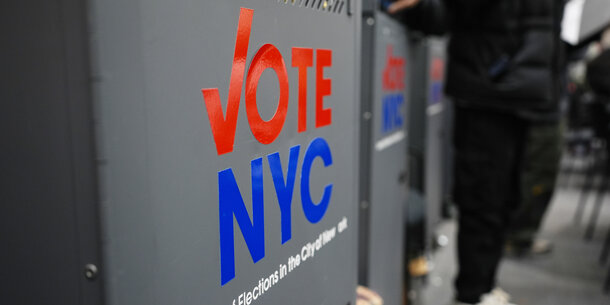This originally appeared in the Washington Post.
After Georgia Republicans’ outrageous bid to suppress voting rights, democracy reform is an idea whose time has come. The For the People Act, recently passed in the House, has new momentum in the Senate. But now some pundits are urging Democrats to strip the bill of many key provisions before the printer’s ink is even dry. That’s a bad idea. Keeping the measure strong is the best way to boost its chances of becoming law.
The For the People Act has big goals. It protects voting rights, establishes automatic voter registration, bars gerrymandering, and curbs the role of money in politics through disclosure and small donor matching funds. It would be the most significant democracy reform in decades, the next great civil rights bill.
There’s no denying the measure faces legislative challenges. Republicans are preparing to filibuster, with Sen. Ted Cruz (R-Tex.) calling it “an all-hands moment.” Democrats, realizing it may pass, are poring over the fine print again. This is the moment when supporters get jittery.
In response to this predictable give-and-take, some commentators have urged sponsors to weaken the bill, jettison campaign finance or redistricting rules, or split it up altogether. That may seem like savvy advice, but it doesn’t actually make sense.
The bill’s power lies in its grand aims. Democrats saw the advantages of this approach with the recent covid bill. Unlike past administrations, they did not negotiate with themselves. Rather, they passed a strong rescue plan, and the measure has sky-high popularity. Ambitious policy can produce winning politics.
The For the People Act, too, reflects the urgent need for broad democracy reforms. Voting rules must be protected, of course, lest Republicans shrink the electorate for 2022. Redistricting, too, comes with a ticking clock: legislatures begin to draw congressional district lines later this year, with a high risk of racial and partisan gerrymandering in many states. And a decade after the Supreme Court’s Citizens United decision, there remains urgency when it comes to money in politics. The 2020 election saw $14 billion in spending, double four years before, with big givers dominating and many candidates of color at particular disadvantage. None of these can wait.
Indeed, Sen. Joe Manchin III (D-W.Va.), a key swing vote on this and so many other bills, published a statement supporting reform but urging bipartisanship. He praised provisions including disclosure of dark money and measures to curb foreign spending in campaigns — in other words, not just voting rights.
Not only are these reforms needed, but weakening the bill misreads political strategy. Narrower bills have narrower constituencies of support. This measure has the strong backing of civil rights groups, good government groups, labor unions, many election officials, and others. It’s the broadest drive for reform in decades.
Republicans understand the bill’s political momentum. According to a leaked recording of a conference call, obtained by the New Yorker, between an adviser to Senate Minority Leader Mitch McConnell (R-Ky.) and several conservative groups, the bill’s conservative opponents realize its provisions are very popular with the public, especially the campaign finance changes. A representative from the Koch brothers’ political network, one of the participants on the call, shared a pollster’s finding that even Republican voters like the bill. No point in trying to argue against it, the Koch adviser told conservative strategists. Procedural obstruction was the only path.
Which leads to a final point: Senate math. With the Senate as polarized as it is today, no provision would garner 60 votes currently needed to win cloture. Jettisoning ethics or campaign reform won’t get a supermajority either. That’s not the path to passage.
To be sure, the measure can be improved. Some election administration provisions need adjustment, because deadlines are too tight and more funding is needed. State officials should be given greater flexibility to implement some election provisions. Fortunately, Senate sponsors realize this, and are already working with officials to tweak the bill.
But it would be unwise to retreat from broad, robust reforms. The way to overcome the filibuster is to build enough public support to force lawmakers to choose between democracy and antiquated Senate rules.
In the spring of 1993, I was the political reform aide to then-President Bill Clinton. We were preparing campaign finance reform legislation. One senator urgently demanded that the measure be strengthened, including full public financing of Senate elections. He made an off-the-schedule visit to the Oval Office to make his case. In that meeting, I was struck by his eloquent passion. Solve the problem, he said, don’t shrink unnecessarily. That senator was Joe Biden. Democrats didn’t listen, and the bill failed.
Let’s hope they take a different approach in 2021, keep the bill strong, and protect American democracy.



